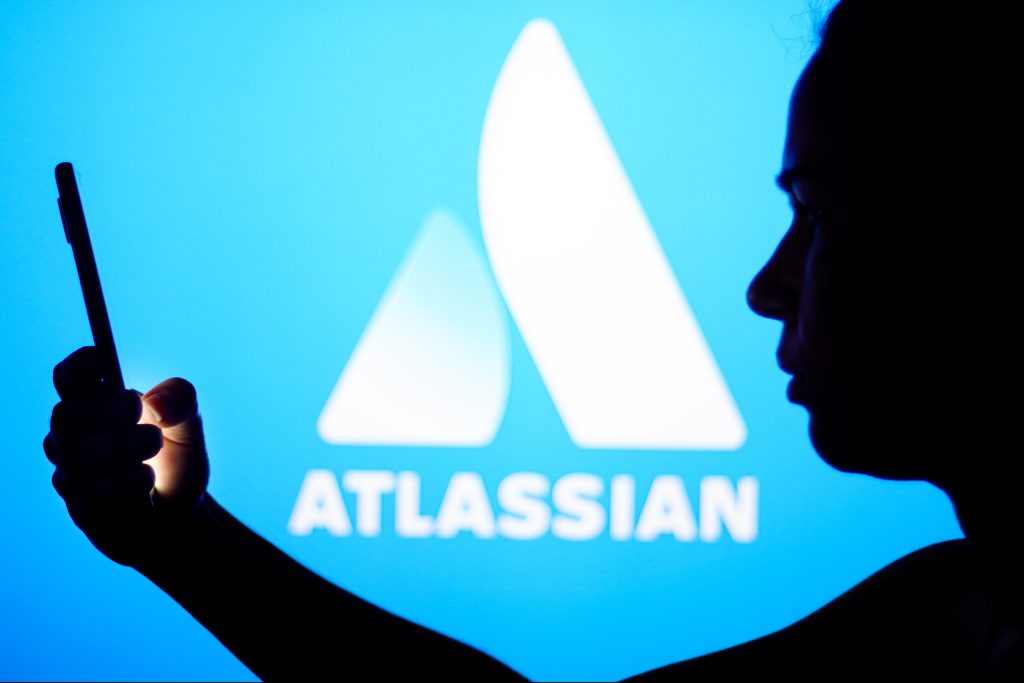Work futurist Dominic Price looks back on three years of ‘Team Anywhere’ at Atlassian, which has a net worth of $44.49 billion and is lauded as one of the most successful companies in Australian history.

For the first six years that Dominic Price worked at Atlassian, his focus was on helping the company scale its delivery of products such as Jira, a platform that helps teams organise tasks.
“We sat down one day and went ‘hang on – if our mission is about unleashing the potential of teams, how can we do that if we don’t know what teamwork might look like in the future?’ My role as a Work Futurist was created as an experiment, and that experiment became my job,” he says.
Price believes that every company should have someone specifically tasked with thinking about who their customers will be in future, how to be on the front foot with change, and how to work smarter.
“There’s an opportunity to create a phenomenal future with more innovation, inclusivity and more creativity,” he says. “But it’s not going to happen by accident. I have the freedom in my role to think laterally about these things.”
In the midst of the pandemic in August 2020, Atlassian launched its Team Anywhere policy, which allows any of its 10,000-plus employees to work from anywhere in the world. They may also work from home 100% of the time.
The policy was launched after consulting with some of the world’s leading experts on distributed working, including scholars from Harvard and Stamford. Price and his team also asked Atlassian employees how they were adjusting to remote work as a consequence of pandemic lockdowns, and if they wanted to continue to work remotely. The answer was a resounding ‘yes.’
Within the first 18 months of the policy of “extreme flexibility” being introduced, almost 300 of its staff had moved to a new country. Atlassian’s global headquarters are in Sydney and 93% of its Australian staff were based there prior to the introduction of Team Anywhere. Nowadays, a quarter of Australian staff live outside Sydney. Price says that the benefits of accessing a bigger talent pool are incalculable.
Related
Price has empathy for organisations who are engaged in a tug of war with staff about whether to mandate certain days of the week as office days. Ultimately though, he believes that more organisations will fully embrace flexibility, and that it will be the norm in future.
“A lot of organisations say, ‘We’re pro-flexibility. But you need to be in the office on Tuesdays, Wednesdays and Thursdays.’ That doesn’t seem like real flexibility to me.”
Price points to the United Kingdom, whose parliament has just passed the Flexible Work Bill to give workers the right to request flexible working from day one of a new job. Employers are obligated to consider any such requests and provide a reason before rejecting it.
In Australia, any employee can request flexibility, but only some are legally entitled to it under the Fair Work Act. This includes being a permanent employee of at least 12 months and being a carer or aged over 55.
“Flexibility should be part of your employee value proposition – this is a point that a lot of organisations are missing,” says Price.
Even so, he acknowledges that some tasks are better done in person, such as complex problem solving.
“If you want to build intentional togetherness and a sense of belonging, that is better done in person. Even at Atlassian, we do ask our staff to connect with their teammates on a regular basis, and ideally in person to build those bonds. But we don’t stipulate which days of the week it needs to be, because then we’d lose the flexibility.”
Atlassian has also seen a massive overhaul of its culture, which was predominantly office-based prior to the pandemic.
“The old cultural norms don’t work anymore,” says Price. “For example, we used to say, ‘Let’s hang out on a Wednesday by the water cooler and share our ideas.’ That’s not fair anymore, because not everyone is not coming into the office. It would create what’s known as ‘proximity bias.’”
Atlassian has embraced asynchronous work, whereby content and ideas are shared online at different times across the day.
“For a lot of our meetings, we don’t physically meet,” says Price. “We write stuff down and share it and 24 hours later, we’ve all provided an update. It’s taken a huge effort to evolve our culture. But it has been worthwhile, because Team Anywhere allows us to access a talent pool that’s more diverse and inclusive. When we do our engagement surveys, our people are telling us they absolutely love it. They feel more engaged and they’re thriving. For us, it’s a no-brainer.”
Dominic Price will be speaking at the upcoming Forbes Leadership Forum on how to navigate transformation, agility, and the future of work. Secure your tickets here.



